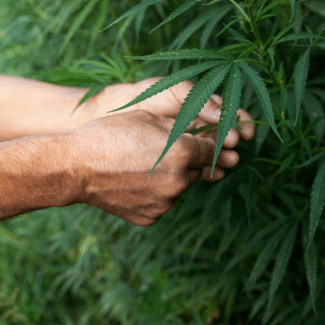Factors Affecting D&O Insurance Pricing for Cannabis Companies
This article explores the various factors that influence the pricing of Directors and Officers (D&O) insurance for cannabis companies. It highlights how aspects such as capital structure, regulatory exposure, and company operations significantly affect underwriting decisions and insurance premiums. By examining these elements, readers can gain a clearer understanding of the complexities involved in obtaining D&O coverage in the cannabis industry.

Directors and officers (D&O) coverage and pricing for cannabis companies vary tremendously, mainly based on the company’s operations and capitalization. This post examines factors instrumental to the underwriting process and why it affects pricing and coverage.
Capital Amount
D&O insurance covers the board of directors and executives for claims made against them for misrepresentations or misappropriation of assets. The more capital you have raised, the higher the exposure. For example, suppose one company has raised a $1M seed round, and another raised a $20M Series B. In that case, the latter company will have a more expensive premium per million of coverage because the exposure is more significant.
Capital Type
In this day and age, there are various ways to raise capital. Companies can access money via venture capital or private equity (institutional), friends and family, crowdfunding, public offering, loan, convertible notes, etc. Crowdfunding and public offering capital have the highest exposures as more shareholders are involved and significantly increased regulatory exposure.
Plant-Touching
Plant-touching operations will have a higher exposure from a D&O perspective due to regulatory considerations. Companies that are brands and control the IP do not have as much regulatory exposure as plant-touching operators; thus, their D&O will typically be much less expensive. This is a crucial distinction that insurance carriers always ask for.
Marijuana (THC) vs. Hemp (CBD)
Another critical distinction underwriters consider is whether your company deals in THC or CBD. Why? Some markets will not write companies that operate in the THC space as it is much more scrutinized from a regulatory perspective and is not federally legal.
Pro Tip ↓
For more in-depth insurance information about THC vs. CBD, read our post: Cannabinoid Differences and What It Means for Insurance Policies
Hemp is much more widely accepted, and more markets can write Hemp-based exposures than THC. Ultimately if two companies have the same structure except one focuses on Marijuana and the other on Hemp, the D&O pricing for a Hemp based company will likely be less expensive. Also, many D&O policies will come with a Cannabis Regulatory Endorsement, which limits coverage for THC operators — but is not super applicable to Hemp based operators.
Key Events
Any “Key Events” where directors are making more representations and warranties can lead to increased pricing per million of coverage. For example, some key events would include.
- IPO (initial public offering)
- Fundraising (i.e., private equity, venture capital)
- M&A activity
- Previous bankruptcy
- RTO (reverse take over)
Location
Where a company is domiciled can have a significant impact on the premium. Suppose you take two identical companies, but one is purely operating in Canada, and the other is solely domiciled in the US. In that case, the Canadian entity has a lower exposure (and consequently premium), typically given the federal regulation differences.
Additionally, D&O pricing can vary depending on the state an operator is established. For example, companies headquartered in California will typically face higher premiums because California is highly litigious — and the legislation favors the plaintiffs. We have seen carriers explicitly state they will not write D&O coverage in the state of California.
Public vs. Private
Similar to various sectors, D&O insurance coverage for public corporations, in contrast to private ones, tends to carry a higher cost per million due to the increased level of risk involved. Why is this the case? Well, when it comes to public companies, they typically have a larger number of shareholders and directors, all bound by a fiduciary duty to act in the utmost interest of these shareholders. Additionally, public companies are subject to more extensive regulatory scrutiny. When considering D&O coverage in the context of the cannabis industry, often referred to as “d&o cannabis,” these factors become even more critical, given the unique challenges and complexities of this burgeoning sector.
Public cannabis companies operating in the US have a unique exposure as these enterprises need to list on a foreign exchange, typically the Canadian Stock Exchange or Toronto Stock Exchange, mainly because Cannabis isn’t federally legal in the US. This dual regulatory risk creates a more significant exposure than your traditional public company operating in the US.
Protecting your cannabis company can seem confusing; however, we’re a full-service insurance brokerage working with carriers worldwide to offer you the best coverage possible. We’re here to help! Please reach out to us today by emailing info@alpharoot.co or calling 646-854-1093 to learn more about your cannabis insurance options.




